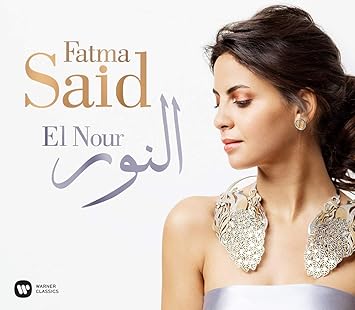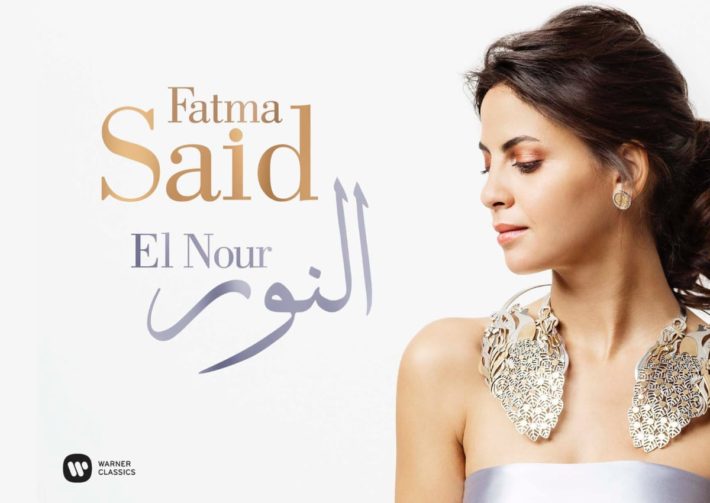With an eclectic, distinctive and personal program, soprano Fatma Said makes her recording debut in an album entitled ‘El nour’ — translated as ‘light’. Mixing a variety of art songs, her program concludes with a selection songs in Arabic, in which Said is accompanied by a range of instrumentalists.

From the outset, Said’s voice is exceptional; the clarity of tone is pristine and natural, the colors pure and even across her entire range. Those familiar with Carolyn Sampson will be able to draw comparisons between the two because of the smoothness and ease with which both sopranos sing. In the French songs, Said’s diction is plain, comprehensible and stylish, qualities that are less distinctive in the Spanish repertoire.
Her vocal interpretations are formidable, communicative and forthright. Said is very much in the driving seat, navigating the direction of these songs with sophisticated levels of expression. Intonation is flawless and vibrato is controlled beautifully. In Ravel’s Shéhérazade, Said is faultless and captivating, making the most of the dramatic moments. There is passion in the first song, seduction in the second and a gentle alluring persuasion in the third.
Coming to this Shéhérazade from the original orchestration may be frustrating, considering Said’s impressive performance. The arrangement goes for an orchestra of ten fingers, yet despite some very impressive playing with a very bright tone by Malcolm Martineau, his best efforts with the piano seem very monochromatic, lacking the kaleidoscopic colors of the composer’s beautifully atmospheric and sensual orchestration. The added ney (wooden Persian flute) in the second movement seems like a good idea on paper, but fails to add anything intrinsic, moreover it serves only to emphasize the lack of orchestral richness. Looking at the arrangement alone, Marianne Crebassa’s recording for Erato is generally more successful; her pianist — Fazil Say, brings a softer color, and between them there is greater unity.
In the selection from “Canciones españolas antiguas” by Federico García Lorca, Said convincingly emphasizes the Moorish and Gypsyesque elements of traditional Iberian music. Some may feel there is an over-projection on occasions, slightly overwhelming the beautiful guitar accompaniment from Rafael Aguirra. When Said steps back, however, there are true moments of magic, as in de Falla’s ‘Tus Ojillos Nergos’ (track 4).
The final sequence of songs is very much a ‘cross-over’, showing a softer, endearing side to Said’s voice. In this highly enjoyable section of the album, Said reveals her technical security differently, being able to sing microtones in the melodic line which are an inherent part of music outside of the equal temperament tonality.
The Warner engineers have captured the musicians and ambiance of the venues across Berlin with care and attention, and the balancing is superb overall. The booklet contains a transcript of an interview with Said and includes full texts and translations.
Said’s voice is so pure it doesn’t need the slightly gimmicky additions. The theme linking the music is clear, however the inconsistencies of genres and styles can be tiring at times. Very much a ‘calling card’ album, commendably showcasing Said’s talents. I for one am looking forward to a more considered program that can do this artist full justice.
“El Nour”
Fatma Said – Soprano
Malcolm Martineau – Piano
Rafael Aguirre – Guitar
Burcu Karadag ̆ – Ney
Warner Classics, CD




















